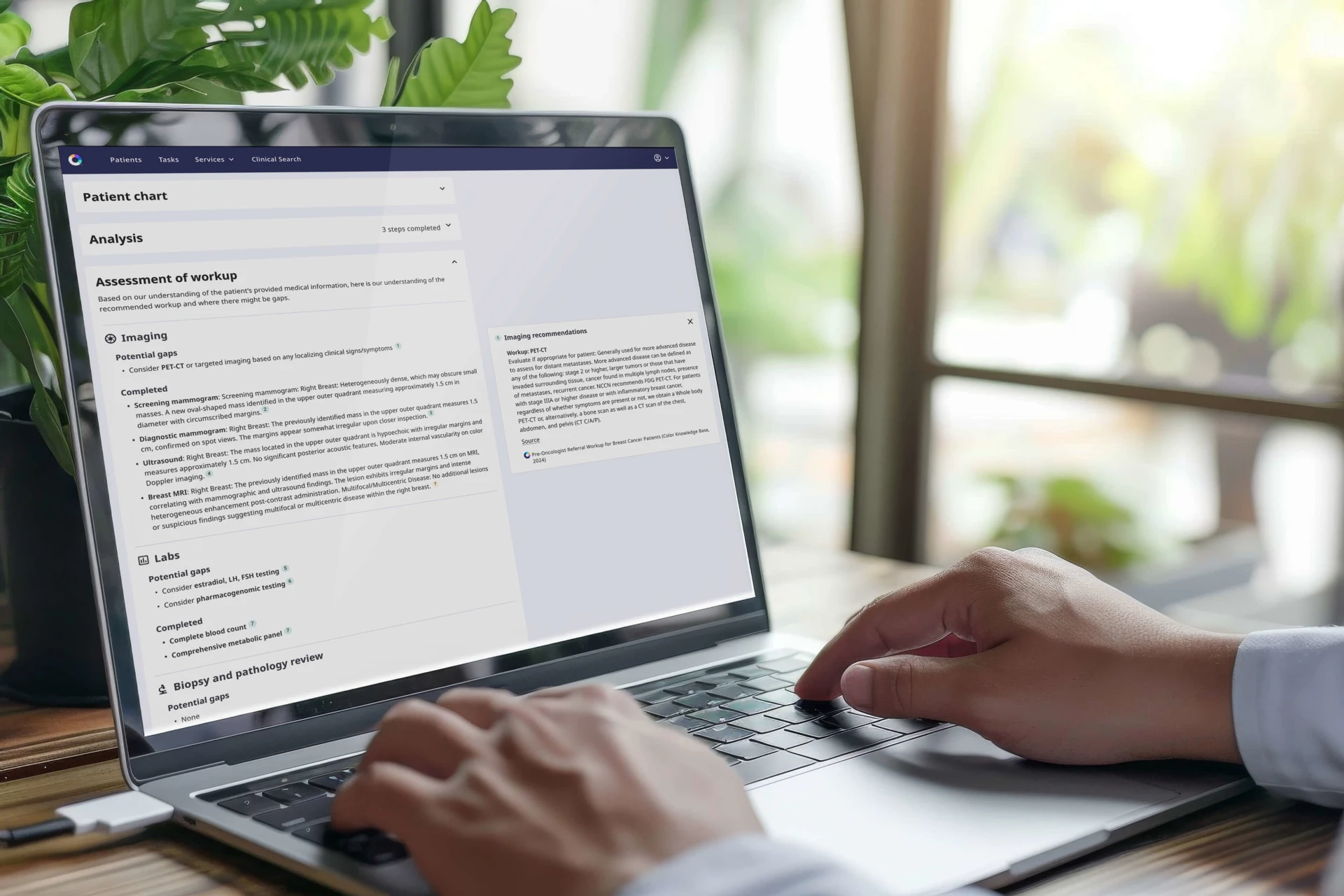Color and OpenAI unveil AI assistant to help transform cancer care

OpenAI and Color Health, a medical startup founded in 2013, have developed an AI assistant or "copilot" based on OpenAI's GPT-4 model. The assistant aims to support clinicians in creating cancer screening plans and preparing treatment after a cancer diagnosis.
Color's AI copilot integrates patient data with clinical knowledge to generate personalized cancer treatment plans that clinicians can review and implement. The application extracts and normalizes patient information such as family history and risk factors, as well as clinical guidelines from trusted sources.
Using this data, the GPT-4o-based copilot identifies missing diagnostic tests and creates a personalized screening plan. It also generates the documentation required for diagnostics, such as medical necessity forms and insurance pre-authorizations.
A clinician then evaluates the AI-generated results, including the source information, and can edit them before they are included in the patient's treatment plan. According to OpenAI, this "human-in-the-loop" approach helps refine the AI over time.
Video: Color / OpenAI
The copilot is designed to assist clinicians in creating cancer screening plans and preparing treatment after a cancer diagnosis. Othman Laraki, CEO of Color Health, emphasizes that the AI copilot is not intended to replace clinicians but to support them - comparable to copilots assisting software engineers.
Studies show that treatment delays can increase mortality by 6 to 13 percent, Laraki notes. "Today, there are real gaps in oncology care based on where a patient receives initial diagnosis," says Dr. Allison Kurian, oncologist and Stanford University School of Medicine and clinically active oncologist. "Many of my patients require weeks to complete all of the tests and evaluations necessary to provide appropriate treatment, during which precious time is lost and additional administrative burden is placed on clinicians."
Color Health Copilot massively reduces wait times in initial tests
To measure the tool's impact, Color is collaborating with the University of California, San Francisco Helen Diller Family Comprehensive Cancer Center (UCSF HDFCCC). After a retrospective evaluation and targeted implementation, the copilot could potentially be integrated into the clinical workflows for all new cancer cases at UCSF.
Color is also testing the copilot with its own clinicians. According to the company, with AI support, they were able to identify four times more missing lab, imaging, or biopsy results than without. On average, healthcare providers only needed five minutes to analyze documents and identify gaps. Without AI support, however, the data is often fragmented and can lead to weeks of delays.
In the second half of 2024, Color plans to use the copilot to generate AI-generated, personalized treatment plans for more than 200,000 patients under medical supervision.
"The idea of combining AI technologies with digitally-enabled clinical workflows to expedite that process would be a positive advancement for all parties involved - the patient and their clinicians, as well as the payer covering the cost of treatment," says Dr. Karen Knudsen, CEO of the American Cancer Society.
AI News Without the Hype – Curated by Humans
As a THE DECODER subscriber, you get ad-free reading, our weekly AI newsletter, the exclusive "AI Radar" Frontier Report 6× per year, access to comments, and our complete archive.
Subscribe nowAI news without the hype
Curated by humans.
- Over 20 percent launch discount.
- Read without distractions – no Google ads.
- Access to comments and community discussions.
- Weekly AI newsletter.
- 6 times a year: “AI Radar” – deep dives on key AI topics.
- Up to 25 % off on KI Pro online events.
- Access to our full ten-year archive.
- Get the latest AI news from The Decoder.